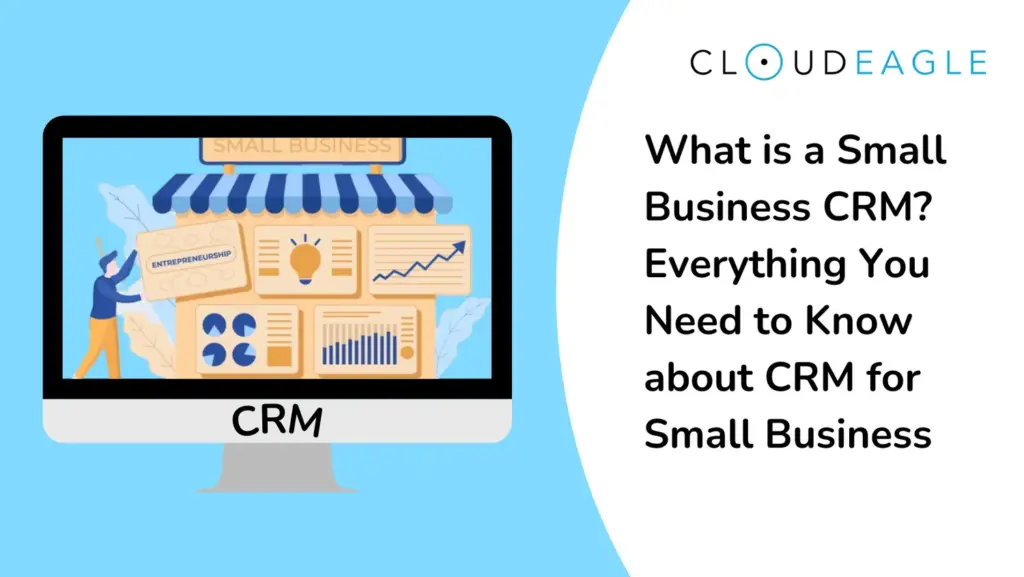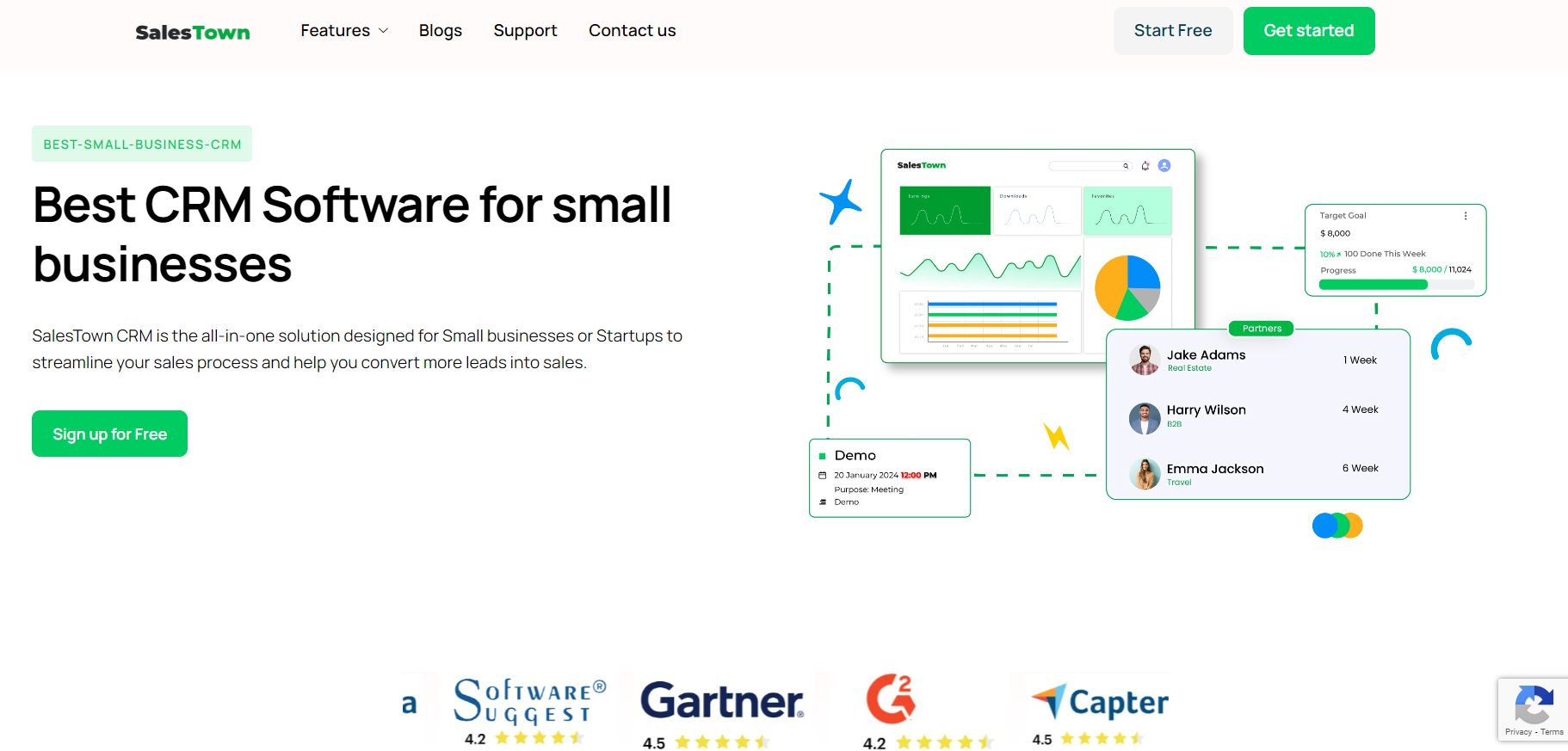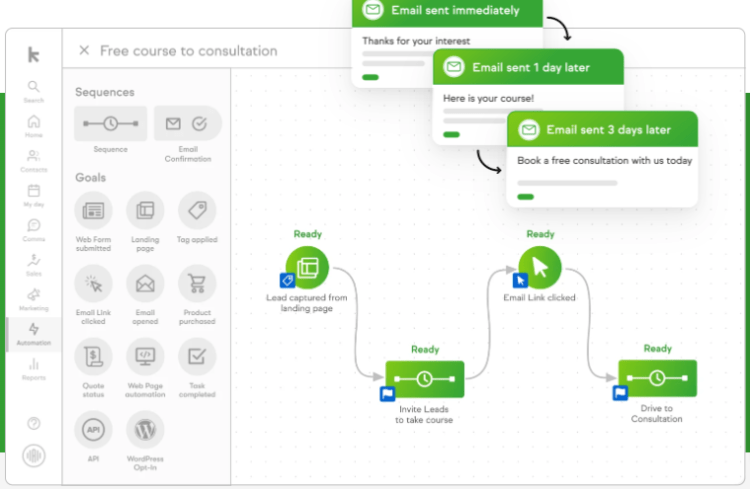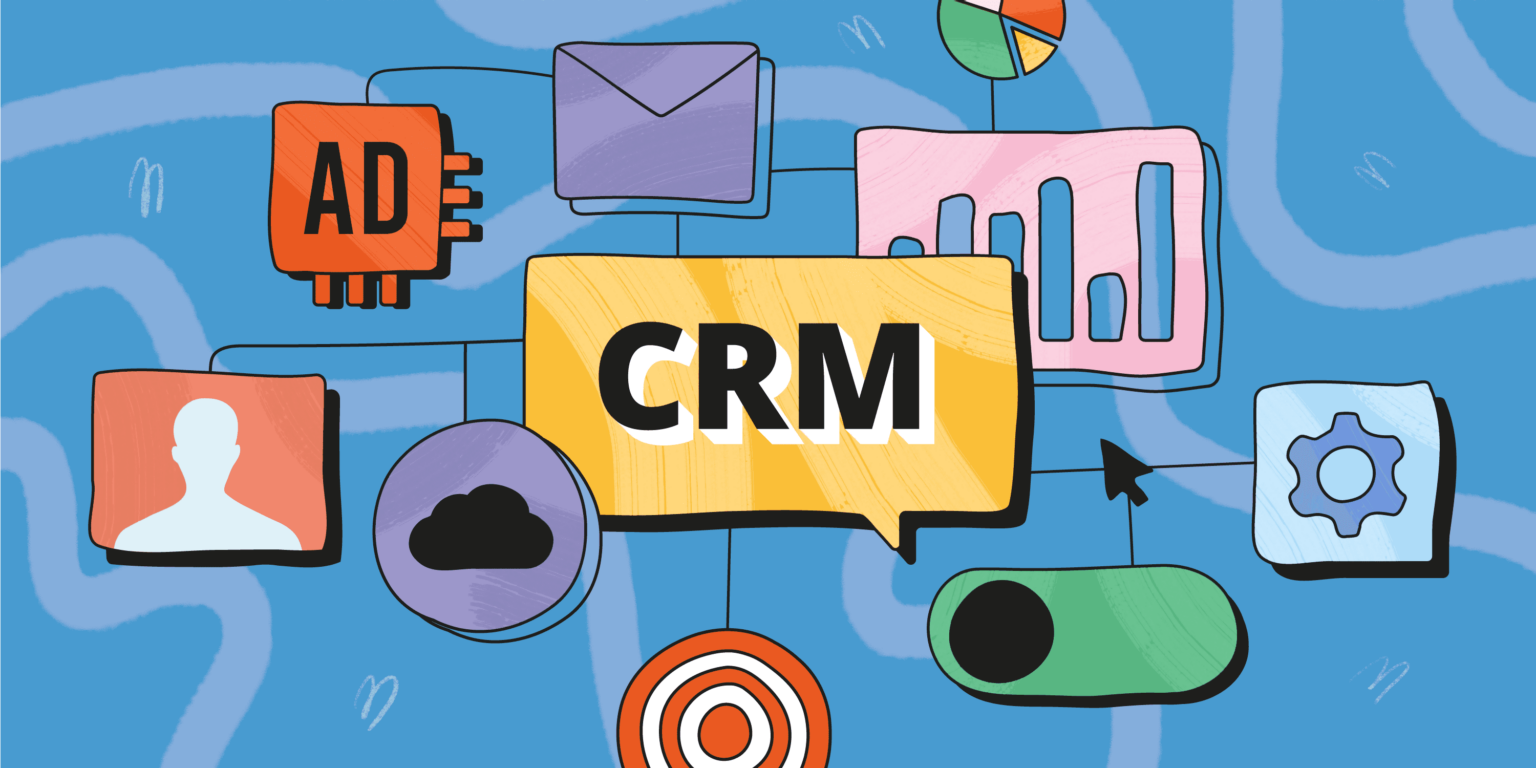The Ultimate Small Business CRM Guide: Grow Your Business with Customer Relationship Management

The Ultimate Small Business CRM Guide: Grow Your Business with Customer Relationship Management
Running a small business is a rollercoaster. One minute you’re celebrating a new client, the next you’re scrambling to keep up with emails, appointments, and follow-ups. It’s a constant juggle, and without the right tools, things can quickly spiral out of control. That’s where a Customer Relationship Management (CRM) system comes in. It’s not just for the big guys; a CRM can be a game-changer for small businesses, helping you streamline operations, boost sales, and build lasting customer relationships. This comprehensive guide will walk you through everything you need to know about CRMs, from the basics to advanced strategies, empowering you to choose and implement the perfect solution for your small business.
What is a CRM? Understanding the Fundamentals
At its core, a CRM is a software system designed to manage and analyze customer interactions and data throughout the customer lifecycle. Think of it as a centralized hub for all your customer-related information. It allows you to track leads, manage contacts, automate tasks, and gain valuable insights into your customers’ behavior and preferences.
Here’s a breakdown of the key functions a CRM typically offers:
- Contact Management: Store and organize customer information, including contact details, communication history, purchase history, and notes.
- Lead Management: Track potential customers (leads) from initial contact to conversion.
- Sales Automation: Automate repetitive sales tasks, such as sending emails, scheduling appointments, and follow-ups.
- Marketing Automation: Create and manage marketing campaigns, track performance, and personalize customer interactions.
- Customer Service: Manage customer inquiries, resolve issues, and provide excellent customer support.
- Reporting and Analytics: Generate reports and analyze data to gain insights into sales performance, customer behavior, and marketing effectiveness.
By centralizing all this information, a CRM helps you:
- Improve Customer Relationships: Understand your customers better and tailor your interactions to their needs.
- Increase Sales: Identify and nurture leads, close deals faster, and increase revenue.
- Boost Efficiency: Automate tasks, streamline workflows, and save time and resources.
- Enhance Customer Service: Provide faster and more personalized support.
- Make Data-Driven Decisions: Analyze data to identify trends, track performance, and make informed business decisions.
Why Small Businesses Need a CRM
You might be thinking, “I’m a small business; do I really need a CRM?” The answer is a resounding yes! While it might seem like an added expense, a CRM is an investment that can pay off handsomely in the long run. Here’s why:
- Customer Relationship is Key: In the competitive landscape of small business, customer relationships are often the differentiator. A CRM helps you build and nurture these relationships by providing personalized attention and consistent communication.
- Growth and Scalability: As your business grows, managing customer data manually becomes increasingly difficult and time-consuming. A CRM provides a scalable solution that can grow with your business.
- Improved Organization: Say goodbye to scattered spreadsheets and lost information. A CRM keeps everything organized in one central location, making it easy to find what you need when you need it.
- Better Lead Management: A CRM helps you track leads, qualify them, and nurture them through the sales pipeline, increasing your chances of conversion.
- Enhanced Collaboration: A CRM allows your team to collaborate more effectively, sharing information and working together to achieve common goals.
- Time Savings: Automating tasks and streamlining workflows frees up your time to focus on more important things, like growing your business.
- Data-Driven Decisions: With a CRM, you can track key metrics, analyze performance, and make data-driven decisions that improve your bottom line.
Key Features to Look for in a Small Business CRM
Choosing the right CRM for your small business can be overwhelming. There are countless options available, each with its own set of features and functionalities. However, some features are essential for small businesses to succeed. Here’s a breakdown of the key features to look for:
- Contact Management: This is the foundation of any CRM. Look for a system that allows you to store and organize contact information, including contact details, communication history, purchase history, and notes.
- Lead Management: A good CRM should help you track leads from initial contact to conversion. Look for features like lead capture forms, lead scoring, and pipeline management.
- Sales Automation: Automate repetitive sales tasks, such as sending emails, scheduling appointments, and follow-ups. Look for features like email templates, automated workflows, and task reminders.
- Marketing Automation: Create and manage marketing campaigns, track performance, and personalize customer interactions. Look for features like email marketing, social media integration, and segmentation.
- Reporting and Analytics: Generate reports and analyze data to gain insights into sales performance, customer behavior, and marketing effectiveness. Look for features like customizable dashboards and real-time reporting.
- Integration: A CRM should integrate with other tools you use, such as email marketing platforms, accounting software, and social media channels.
- Mobile Access: Access your CRM data on the go with a mobile app or a responsive website.
- User-Friendliness: Choose a CRM that is easy to use and navigate. The more intuitive the system, the faster your team will adopt it.
- Scalability: Choose a CRM that can grow with your business. As your business expands, you’ll need a CRM that can handle increased data and user volume.
- Customer Support: Make sure the CRM provider offers excellent customer support. You’ll need help when you encounter issues or have questions.
Top CRM Solutions for Small Businesses
Now that you know what to look for, let’s take a look at some of the top CRM solutions for small businesses. The best CRM for you will depend on your specific needs and budget, so it’s important to do your research and compare different options.
- Zoho CRM: Zoho CRM is a popular choice for small businesses due to its affordability, user-friendliness, and comprehensive features. It offers a wide range of features, including contact management, lead management, sales automation, marketing automation, and reporting. It also integrates with other Zoho apps and third-party applications.
- HubSpot CRM: HubSpot CRM is a free CRM that offers a wide range of features, including contact management, lead management, sales automation, and marketing automation. It’s a great option for small businesses that are just getting started with CRM. HubSpot also offers paid plans with more advanced features.
- Salesforce Sales Cloud: Salesforce Sales Cloud is a powerful CRM that is suitable for businesses of all sizes. It offers a wide range of features, including contact management, lead management, sales automation, marketing automation, and reporting. It’s a more expensive option, but it’s a good choice for businesses that need a comprehensive CRM solution.
- Pipedrive: Pipedrive is a sales-focused CRM that is designed to help sales teams close deals faster. It offers a visual sales pipeline, deal tracking, and sales automation features. It’s a good choice for businesses that are focused on sales.
- Freshsales: Freshsales is a CRM that is known for its ease of use and affordability. It offers a wide range of features, including contact management, lead management, sales automation, and reporting. It’s a good choice for small businesses that are looking for a simple and effective CRM solution.
- Insightly: Insightly is a CRM that is designed for small businesses and startups. It offers a wide range of features, including contact management, lead management, project management, and sales automation. It’s a good choice for businesses that need a CRM that can also manage projects.
When evaluating these or any other CRM, consider these factors:
- Price: CRM pricing varies widely. Consider your budget and the features you need. Many offer free plans or free trials.
- Ease of Use: Look for a CRM that’s intuitive and easy to learn. Training time is money.
- Features: Make sure the CRM offers the features you need, such as contact management, lead management, sales automation, and reporting.
- Integrations: Consider which other tools you use and ensure the CRM integrates with them.
- Customer Support: Check the provider’s support options and reputation.
Implementing a CRM: A Step-by-Step Guide
Choosing a CRM is only the first step. Implementing it successfully is crucial to realizing its benefits. Here’s a step-by-step guide to help you implement your CRM:
- Define Your Goals and Objectives: Before you start, clearly define your goals and objectives for implementing a CRM. What do you want to achieve? (e.g., increase sales, improve customer satisfaction, streamline processes).
- Choose the Right CRM: Based on your goals and objectives, choose the CRM that best meets your needs. Consider the features, pricing, and integrations.
- Plan Your Implementation: Develop a detailed implementation plan that outlines the steps you’ll take, the timeline, and the resources you’ll need.
- Clean and Import Your Data: Clean up your existing data and import it into the CRM. This may involve removing duplicates, correcting errors, and organizing information.
- Customize Your CRM: Customize the CRM to fit your specific business needs. This may involve creating custom fields, workflows, and reports.
- Train Your Team: Train your team on how to use the CRM. Provide them with the necessary training and resources.
- Test and Refine: Test the CRM thoroughly to ensure it’s working correctly. Refine your implementation based on your testing and feedback.
- Go Live and Monitor: Launch your CRM and monitor its performance. Track key metrics and make adjustments as needed.
- Provide Ongoing Support: Provide ongoing support to your team and ensure they are using the CRM effectively.
Tips for CRM Success
Implementing a CRM is a journey, not a destination. Here are some tips to help you achieve CRM success:
- Get Buy-In from Your Team: Involve your team in the implementation process and get their buy-in. Explain the benefits of the CRM and how it will help them.
- Start Small: Don’t try to implement everything at once. Start with the core features and gradually add more functionality.
- Keep It Simple: Don’t overcomplicate things. Keep the CRM simple and easy to use.
- Focus on Data Quality: Ensure that your data is accurate and up-to-date. Garbage in, garbage out.
- Provide Ongoing Training: Provide ongoing training to your team to ensure they are using the CRM effectively.
- Measure Your Results: Track key metrics to measure the success of your CRM implementation.
- Be Patient: It takes time to see the full benefits of a CRM. Be patient and persistent.
- Regularly Evaluate and Adapt: Review your CRM usage and needs periodically. Adjust your strategy as your business evolves.
Integrating CRM with Other Tools
To maximize the benefits of your CRM, consider integrating it with other tools you use in your business. Here are some common integrations:
- Email Marketing Platforms: Integrate your CRM with email marketing platforms like Mailchimp or Constant Contact to automate email campaigns and personalize your messaging.
- Accounting Software: Integrate your CRM with accounting software like QuickBooks or Xero to track sales, manage invoices, and gain a complete view of your financial data.
- Social Media: Integrate your CRM with social media platforms like Facebook or Twitter to monitor social media activity, engage with customers, and track leads.
- Help Desk Software: Integrate your CRM with help desk software like Zendesk or Freshdesk to provide better customer support and track customer inquiries.
- Calendar and Scheduling Tools: Integrate your CRM with calendar and scheduling tools like Google Calendar or Outlook Calendar to manage appointments, schedule meetings, and track your time.
These integrations can help you streamline your workflows, improve your efficiency, and gain a more comprehensive view of your business.
The Future of CRM for Small Businesses
The CRM landscape is constantly evolving, with new technologies and features emerging all the time. Here are some trends to watch out for:
- Artificial Intelligence (AI): AI is being used to automate tasks, personalize customer interactions, and provide insights into customer behavior.
- Mobile CRM: Mobile CRM apps are becoming more sophisticated, allowing businesses to access their CRM data and manage their customer relationships on the go.
- Social CRM: Social CRM is becoming more important as businesses use social media to engage with customers and build relationships.
- Personalized Customer Experiences: Businesses are focusing on providing personalized customer experiences to improve customer satisfaction and loyalty.
- Focus on Data Privacy and Security: Data privacy and security are becoming increasingly important, and CRM providers are investing in security measures to protect customer data.
By staying informed about these trends, you can ensure that your CRM strategy is up-to-date and effective.
Conclusion: Harnessing the Power of CRM for Your Small Business
A CRM is a powerful tool that can transform your small business. By choosing the right CRM, implementing it effectively, and leveraging its features, you can improve customer relationships, increase sales, boost efficiency, and make data-driven decisions.
Don’t let the complexities of managing customer data hold you back. Embrace the power of a CRM and watch your small business thrive. Take the time to research different CRM options, choose the one that best fits your needs, and get started today. The rewards – a more organized, efficient, and customer-centric business – are well worth the effort.
Remember, the key to success with a CRM is to start with a clear understanding of your goals, choose the right solution for your business, and commit to ongoing training and adaptation. With the right approach, your CRM will become an invaluable asset, helping you to build stronger customer relationships and achieve sustainable growth.




